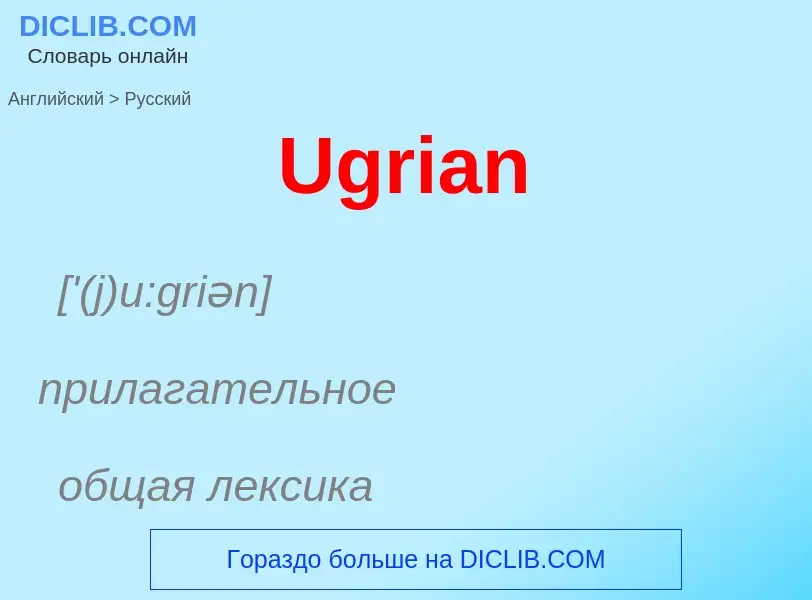Traducción y análisis de palabras por inteligencia artificial
En esta página puede obtener un análisis detallado de una palabra o frase, producido utilizando la mejor tecnología de inteligencia artificial hasta la fecha:
- cómo se usa la palabra
- frecuencia de uso
- se utiliza con más frecuencia en el habla oral o escrita
- opciones de traducción
- ejemplos de uso (varias frases con traducción)
- etimología
Ugrian - traducción al ruso
['(j)u:griən]
прилагательное
общая лексика
угорский
относящийся к уграм
прилагательное
общая лексика
финно-угорский (о языках)
Wikipedia
The Ob-Ugric languages are a commonly proposed branch of the Uralic languages, grouping together the Khanty (Ostyak) and Mansi (Vogul) languages. Both languages are split in numerous and highly divergent dialects. They, along with Hungarian, are often thought to comprise the Ugric branch of the Uralic languages, though the acceptance of Ugric is less frequent than acceptance of Ob-Ugric.
The languages are spoken in the region between the Urals and the Ob River and the Irtysh in central Russia. The forests and forest steppes of the southern Urals are thought to be the original homeland of the Ugric branch. Beginning some 500 years ago the arrival of the Russians pushed the speakers eastward to the Ob and Irtysh. Some Mansi speakers remained west of the Urals until as late as the early 20th century. Hungarian split off during the 11th century BC. The Ob-Ugric languages have also been strongly influenced by nearby Turkic languages, especially Tatar.
Mansi has about 1,000 speakers while Khanty has about 10,000 speakers, all within Russia. Until 1930, these languages had no written or literary traditions, but since 1937 have used a modified Cyrillic alphabet. However, no significant texts have been created in these languages and they have few official usages.



